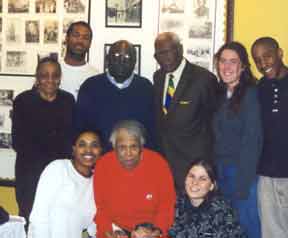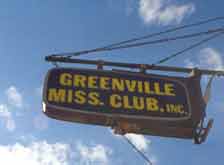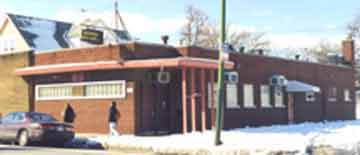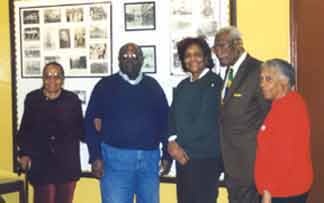|

Lena Vaesser, Donald Cole, Melvin Taylor, Clyde Lee, Karla Tibbetts, Kenrick McNish,
Kelly Denson, Jimmye Dunlap, Sarah Booth
|
|
African-Americans encountered from the "old schoolers" of Chicago. When
asked about discrimination from either blacks or whites in the city, Lee, one member of the Greenville club answered
that Chicago was not the utopia they thought that it was. Lee said, "as Martin Luther King put it, Chicago
was down North and Greenville as up South." Melvin Taylor, another member of the club, said that there are
people from Greenville who refuse to join the club because they are not proud of being from Greenville. He says,
"I worked in a factory and I saw a lady there. I asked her if she was from Greenville and she told me no."
Taylor goes said "she said I don't tell people I'm from Greenville." Taylor argued that migrating Greenvillians
did not feel Northerners appreciated them since they had come from a place like Mississippi, so they deny their
home, to please everyone else. |




